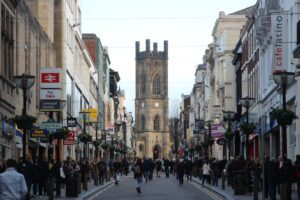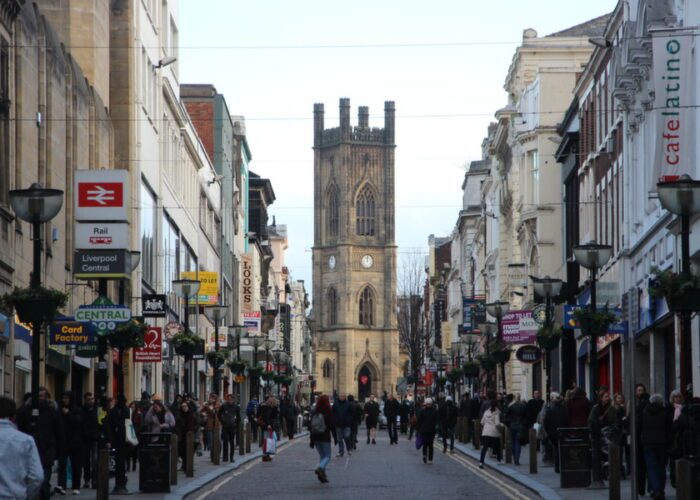
The North West suffered a huge net reduction in the number of shops situated in the region last year, according to new data published.
Figures from Pricewaterhouse Coopers and the Local Data Company show that the North West recorded an overall decrease of 132 shops as 542 outlets were closed, while 410 new ventures opened in 2014.
The North West, which saw its net reduction more than double 2013’s 65 figure, ranked third in the overall list, with the West Midlands (153) and the East Midlands (147) the only regions placed higher up in the table.
Matthew Hopkinson, Director of The Local Data Company, told JMU Journalism: “The North West, over the last sort of six years, has been one of the most economically challenged in terms of consumer spending.
“The North West has a massive concentration on shops but while online has picked up a lot of the slack, people still want to go to shops and have a good time.”
The data analysis from the Local Data Company, which was commissioned by Pricewaterhouse Coopers, was based on the top 500 UK town centres and found overall that 5,839 outlets closed nationwide last year, equivalent to 16 a day.
Mobile phone outlets in the North West suffered the highest number of reductions by a considerable margin with 42, which was followed by building societies (16), women’s clothing shops (15), cheque-cashing specialists (11) and pawnbrokers (11).
Neil McTiffin, Pricewaterhouse Coopers’ North West retail leader, said in a press release: “We’re again seeing the continued effects of the digital revolution and consequent change in customer behaviour play out on the high street.
“Customers are embracing new mobile technologies, traditional retail channels to market are being wiped out and new channels are being created, often in the online rather than the ‘real’ world.”
He continued: “The future can be seen by watching the ‘digital natives’ at work and play – those who have grown up with online shopping, mobile phones and ubiquitous broadband have a very different relationship with traditional high streets than the previous generations.
“Rather than try to recreate the past, the high street needs to evolve to be relevant to the future.”

